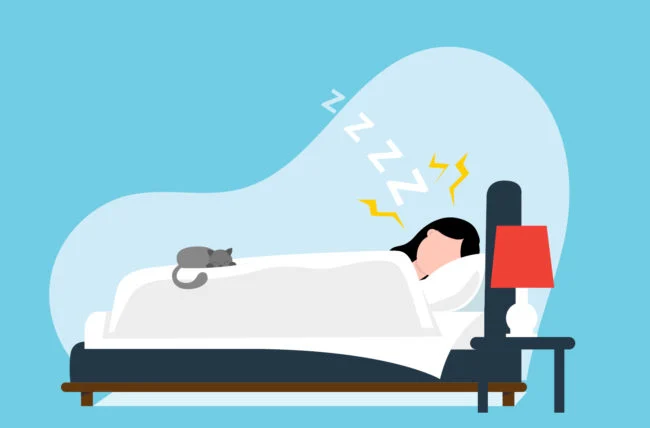Natural remedies For treating snoring || wellhealthorganic.com

Snoring Home Remedies1
wellhealthorganic.com:if-you-are-troubled-by-snoring-then-know-home-remedies-to-deal-with-snoring
Snoring is a widespread issue that affects millions of people across the globe. It can result in disturbed sleeping patterns for the snorer as well as their partner, which leads to irritability and fatigue and other health problems. There are a variety of solutions that are natural and can help reduce or even eliminate snoring.
In this blog, ” Best Home Remedies for Snoring,” you will discover a number of practical and simple strategies to help you or a loved ones get a great night’s rest. In case you’re experiencing moderate snoring or more serious sleep apnea problems, this book will provide you with all the details you need to help stop or lessen it completely, without resorting to expensive medical procedures or other invasive treatments.
Understanding the Science of Snoring
wellhealthorganic.com:if-you-are-troubled-by-snoring-then-know-home-remedies-to-deal-with-snoring
Snoring is a common problem that affects millions of people around the world. It occurs when the flow of air through the mouth and nose is blocked at night which causes the tissue in the throat area to vibrate, which results in the sound of snoring.
Snoring can be caused by many factors, including age, weight or weight gain, drinking alcohol smoking, as well as anatomical issues in the throat and nose. It may also be a sign of a serious illness known as sleep apnea. It is a condition in which breathing repeatedly stops and starts when you sleep.
The effects of snoring can have a major impact on sleep quality, leading to daytime fatigue irritation, stress, and difficulties concentrating. It can also increase the chance of developing more serious health problems, for example, cardiovascular disease, hypertension, and stroke.
To stop or reduce snoring, you need to identify the underlying causes. Simple lifestyle modifications, like losing weight, quitting smoking, and avoiding alcohol before bedtime, can often help reduce the amount of snoring. In more severe instances, medical treatment or devices could be required.
Identifying the Causes of Snoring
Snoring is due to a partial obstruction of the airways while sleeping, leading to vibration of the soft tissues in the throat and mouth. There are several factors that contribute to this issue, including age, weight, and anatomical abnormalities in the throat and nose.
As people age, their throat muscles naturally weaken and can lead to an increase in the chances of having a snore. Obesity or overweight may result in snoring because excess fat puts tension on your airways and cause them to shrink. Anatomical problems, such as a deviated septum, enlarged tonsils, or a small jaw, may also cause the snoring.
Certain lifestyle factors can also be a factor in snoring for example, drinking alcohol, smoking cigarettes, and sedative usage. Smoking causes irritation to the lining the throat and may cause inflammation. Alcohol and sedatives relax the throat muscles and could cause snoring.
The root causes of snoring is important for coming up with effective solutions. Making lifestyle adjustments, like getting rid of weight loss, quitting smoking and abstaining from alcohol prior to bed, and addressing anatomical abnormalities which cause snoring, the problem can usually be diminished or completely eliminated. In more serious cases, medical treatments or devices may be necessary.
Lifestyle Changes to Reduce Snoring
Making simple changes to your lifestyle can be beneficial in decreasing or removing the snoring. One of the primary actions is to keep an ideal weight by eating the right diet and consistent exercise. Being overweight or obese could cause pressure on the airways and cause sleep snoring.
Eliminating alcohol and sedatives prior sleeping is also beneficial, as these substances can relax the muscles of the throat and contribute to the snoring. Also, quitting smoking can reduce inflammation in the throat and increase airflow.
If you sleep on your side instead of lying on your back could help in reducing snoring since lying on your back can result in the soft tissue and tongue inside the throat to drop back and partially block the airways. Elevating the head of the bed may also aid by opening up the airways and reduce snoring.
With these easy lifestyle changes, many people are able to reduce or eliminate snoring. They also improve the quality of their sleep. However, in the most severe situations, medical treatments or devices could be required.
The Power of Breathing Exercises for Snoring
Breathing exercises can be an effective method to reduce snoring. They are intended to strengthen the muscles in the throat and promote more effective breathing while sleeping.
An exercise that is commonly used to improve breathing is known as”the “didgeridoo” exercise. This involves making a continuous low-pitched sound when breathing out and in through the nose. This exercise can help strengthen the muscles in the throat and improve airflow.
Another way to practice breathing deeply is by inhaling through the nose before exhaling vigorously through the mouth, creating the “ha” sound. This exercise can help clear the airways and promote better breathing.
Yoga and meditation practices can be helpful in reducing the amount of snoring. These practices focus on slow, deep breathing and relaxation techniques, which can reduce tension and stress within the body, and encourage more comfortable sleep.
Breathing exercises can be a simple and effective way to lessen snoring. However, it is crucial to work with a certified healthcare professional to determine the best exercises that meet your needs. In some cases, medical treatments or devices might be required in order to stop the issue of snoring.
There are other techniques that can aid in breathing improvement and lessen the frequency of snoring. One such technique is called nasal irrigation. It involves flushing the nasal passages with a saline solution. This helps clear the sinuses, and also promote better breathing.
Another method is referred to by the “tongue slide” exercise. This involves sticking the tongue out as far as it is possible, then sliding it back into the mouth, maintaining it in contact with the bottom teeth. This activity can help to build the muscles of the tongue, and decrease the possibility of it falling down and blocking the airways while asleep.
Also, learning to play an instrument that is wind-driven like a flute or saxophone, can be beneficial in reducing sleep snoring. Instruments like these can help strengthen the muscles in the throat and improve the flow of air.
It is vital to keep in mind that although breathing exercises and other strategies can help reduce the frequency of snoring, they won’t be appropriate for all. It is important to work with a doctor to figure out the best method for your individual needs, and to address any underlying medical conditions that might be causing snoring.
The Magic of Herbal Remedies for Snoring
Herbal remedies can be a natural and effective way to stop the snoring. Many of the herbs have properties that can ease inflammation, promote relaxation, and help improve breathing.
One herb commonly used for Snoring is chamomile. Chamomile is anti-inflammatory and can help reduce inflammation in your throat and promote more effective breathing. A cup of chamomile before bedtime can improve sleep and improve the quality of sleep, and also reduce the snoring.
Another herb commonly used for Snoring is peppermint. Peppermint has a cooling and comforting effect that can reduce throat inflammation and improve breathing. Inhaling or drinking a cup of peppermint tea peppermint essential oil before bed can aid in reducing the snoring.
Eucalyptus is another herb commonly used for sleep snoring. Eucalyptus has a decongestant impact that helps clear airways and facilitate better breathing. Inhaling the essential oil of Eucalyptus before going to sleeping can reduce snoring.
Other herbs that are commonly used to treat snoring comprise lavender, valerian root, as well as lemon balm. These herbs possess properties that may help improve relaxation and improve quality of sleep and can help to lessen snoring.
It is vital to work with a qualified healthcare professional when using herbal remedies for snoring, as some herbs can interfere with medication or cause adverse negative effects. Also, while herbal remedies can be efficient in reducing the snoring of a person, they might not be appropriate for all.
The Benefits of Essential Oils for Snoring
Essential oils are an effective and natural approach to reduce the amount of snoring. Many essential oils have properties that can reduce inflammation, increase relaxation and improve breathing.
The most common essential oil used to help snore is lavender. Lavender’s calming and calming properties that help to reduce stress and encourage a more peaceful sleep. Inhaling lavender essential oils prior to sleep can decrease snoring.
Another essential oil used to treat snoring is eucalyptus. Eucalyptus can be used to treat constipation that helps clear airways and improve breathing. The inhalation of essential oil from Eucalyptus prior to sleep can help to reduce the snoring.
Essential oils of peppermint are efficient in reducing your snoring. Peppermint’s cooling and soothing effect that may aid in reducing inflammation within the throat, and help promote better breathing. Inhaling the essential oil of peppermint prior to going to sleeping can reduce the snoring.
Other essential oils that are commonly used to help snore include the essential oils of thyme, tea tree and lemon. These essential oils have properties that can help reduce inflammation, increase relaxation, and aid in improving breathing.
It is essential to work with a trained medical professional when applying essential oils to help with snoring, as some essential oils can interact with medication or trigger adverse effects. Also, while essential oils are effective in decreasing snoring, they might not be suitable for everyone.
The Effectiveness of Acupressure for Snoring
Acupressure is a safe and non-invasive procedure that may help to reduce snoring. Acupressure involves applying pressure to specific areas of the body in order to speed up healing and enhance function.
Acupressure points that are commonly utilized to stop snoring is the Renzhong point, which is located on the bridge between the mouth and the upper lip. Applying gentle pressure to this point can aid in opening the airways and help improve breathing.
Another acupressure site that is often employed to help with snoring is Fengchi point that is situated at the lower part of your skull. The gentle pressure applied to this point may help ease tension and encourage relaxation, which can help reduce snoring.
The Yintang area, situated between the eyebrows is also effective in decreasing the snoring. By applying gentle pressure to this spot will help ease stress and increase relaxation, which can lower the amount of snoring.
Other points of acupressure that are frequently utilized to help with snoring include the Shangxing point located between the eyebrows and hairline, and the Tongli point, which is located between the index and thumb. By applying gentle pressure to these points can aid in relaxation and improve breathing.
It is essential to consult a licensed practitioner of acupressure before using it to help snore, since applying pressure to the wrong areas or using excessive pressure can result in harm. While acupressure is able to be effective in reducing the sound of snoring, it won’t be suitable for everyone.
Yoga Poses for a Silent Sleep
Yoga is an excellent method to relieve stress and improve relaxation. This will help to reduce snoring and help promote more restful sleep. Below are five yoga poses to help promote a silent sleep:
A Cobra Pose (Bhujangasana) The pose helps open the chest and improve breathing. Lie on your stomach with your hands underneath your shoulders. Inhale and lift your chest off the floor, pressing your hands down to lift you up. Take a few deep breaths and then release.
Bridge Pose (Setu Bandha Sarvangasana) This posture helps stretch the spine while encouraging relaxation. You can lie on your back and bend your knees and your feet on the floor. Inhale and lift your hips towards the ceiling. Take a few deep breaths and then let go.
Children’s Pose (Balasana): This pose assists in relaxation and reducing stress. Start by laying on your hands and knees. Keep your hands underneath your shoulders and your knees tucked under your hips. Bring your hips back to your heels and extend your arms out toward the side. Take a few deep breaths and then let go.
Corpse pose (Savasana) It is the ultimate relaxation pose and can help reduce stress and encourage a peaceful sleep. Lying on your back, place your arms at your sides as well as your legs in a straight line. Close your eyes and concentrate on your breath. For a couple of minutes, hold and then let it go.
A.N.B. (Nadi Shodhana Pranayama): This breathing technique can help balance the body and decrease stress. Place yourself in a comfortable posture and close your right nostril by using your thumb. Inhale from your left nostril and then close it with your ring finger. Release your thumb and exhale out your right nostril. Inhale through the right nostril and then close it with your thumb. Release your ring finger, and exhale from your left nostril. Repeat for some time, paying attention to your breath.
It is crucial to practice yoga under the guidance of a yoga instructor who is certified particularly if you are not experienced in yoga, or have any health issues. Additionally, while yoga can help reduce your snoring, it won’t be appropriate for all.
The Role of Diet in Reducing Snoring
Diet plays a part in reducing the snoring issue by aiding in weight control and reducing inflammation within the body. Here are a few changes in diet that could help to reduce sleep snoring
Reduce or eliminate Alcohol consumption: Alcohol can relax the muscles of the throat, leading to an increase in snoring. Cutting back on alcohol or completely eliminating it can lessen the likelihood of snoring.
Avoid eating large meals prior to bedtime If you eat a huge, heavy meal before going to bed could cause nausea and raise the chances of sleep snoring. Make sure to eat smaller meals later into the night.
Increase Intake of Fruits and Vegetables: Both fruits and vegetables are full of antioxidants as well as anti-inflammatory compounds that can help reduce inflammation in the body and help improve breathing.
Avoid high-fat and processed foods The consumption of processed and high-fat meals can cause the weight gain that could lead to the habit of snoring. You should limit these types of foods on your menu.
Drink Plenty of Water Drinking enough water can help lessen the buildup of mucus in the throat and nose and can lead to snoring.
It is essential to speak with a medical professional or registered dietitian prior making significant changes to your diet, especially in the event of any existing medical conditions. Also, although dietary changes may be beneficial in reducing the frequency of snoring, they won’t be the only option and other treatments may be needed.
The Importance of Sleeping Positions for Snoring
The position you sleep in can play an important role in snoring because it can affect the airway and may cause an obstruction or blockage in a small part. Here are some suggestions on sleeping positions that will help reduce snoring:
If you sleep on your sides, sleeping on your back could cause the tongue and soft tissues located in the back of your throat to shrink, resulting in snoring. By sleeping on your sides, you can help keep the airway open and reduce snoring.
Lift your head up: Utilizing a cushion or raising the head of the mattress can reduce the your snoring by keeping your airway clear and reducing amount of pressure that is placed on the throat.
Do not sleep on your stomach: If you sleep on your stomach, it could put pressure on your neck and cause the airway to narrow, leading to snoring.
Make use of a body pillow: Utilizing a body pillow could help you stay in a position that allows you to sleep on your side and lower the chances of falling onto your back.
It is important to keep in mind that while sleeping position helps reduce snoring it may not be the only option and other actions may be required. It is essential to speak with a doctor to get a complete evaluation and a personalised treatment program.
Overcoming Nasal Congestion for a Snore-Free Sleep
Nasal congestion can be a common cause of snoring, as it can cause difficulty breathing through the nose and result in breathing by mouth. Here are some ideas for how to overcome nasal congestion and get restful and peaceful night:
Maintain clear nasal passages A Nasal spray or rinse with saline will help keep nasal passages clear, and also reduce congestion.
Use a humidifier: Adding humidification to the air can reduce nasal congestion and help improve breathing. A humidifier in the bedroom can aid in this.
Nasal strips can clear the nasal passages to improve airflow, reducing snoring.
Avoid irritants These include irritants like cigarettes smoke, allergens, as well as pollution can cause irritation to the nasal passages, causing congestion. Eliminating these irritating substances can help alleviate nasal congestion.
Treat the underlying condition These include sinus infections, allergies, and deviated septums can result in nasal congestion as well as snoring. Treatment of these conditions may aid in reducing congestion and improving breathing.
It is essential to speak with a medical professional for a comprehensive evaluation and a customized treatment plan if nasal congestion persists or is associated with other symptoms.
The Connection Between Snoring and Sleep Apnea
Snoring and sleep apnea are closely linked, since the snoring phenomenon can be a sign of sleep apnea. Sleep apnea is a condition that causes pauses in breathing, or a shallow breathing pattern during the night, which may cause a reduction in the oxygen levels of the blood and disrupt sleep. Snoring is a sign that the airway becomes partially blocked, causing resonances in the tissues around the throat when air moves through.
Sleep apnea can often be identified through a sleep test, which analyzes breathing patterns and oxygen levels during sleep. The treatment for sleep apnea might involve changes in lifestyle, including weight loss and changes to sleeping positions in addition to the utilization of a continuous positive airway pressure (CPAP) machine that delivers air pressure to keep an airway wide.
If you frequently snore and you also have other symptoms like choking or gasping in the night, excessive insomnia, or headaches in the morning, it is important to consult with a healthcare provider for evaluation and potential treatments for sleep apnea.
Medical Treatments for Snoring
There are several medical treatments for snoring that are available, depending on the cause of the problem and severity of the condition. Here are some examples:
Continuous Positive Airway Pressure (CPAP):A CPAP machine delivers a continuous flow of air via a mask that is worn around the nose and/or mouth to help keep the airway open during the night.
Oral Appliances: A dental appliance can be made to suit the mouth and helps keep the tongue and soft tissues from blocking the airway while you sleep.
Surgery: Surgery could be an option in situations where your snoring is caused due to physical abnormalities such as a deviated septum, or an increase in the size of tonsils.
Radiofrequency Tissue Ablation (RFTA) Radiofrequency Tissue Ablation (RFTA): This minimally-invasive procedure utilizes radiofrequency energy to tighten and shrink the tissues in the throat, reducing the risk of snoring.
Injection Snoreplasty The procedure involves injecting a hardening agent into the soft palate to firm the tissues and reduce the frequency of snoring.
It is essential to speak with a doctor to obtain an evaluation and recommendations on the most appropriate solution for your specific case of snoring.
Devices to Stop Snoring: Do They Really Work?
There are numerous devices in the marketplace that claim to help reduce or eliminate the snoring. They function by altering the jaw’s position and tongue, or the soft palate to ensure that the airway open during sleep. Examples include:
Mandibular Advancement Devices (MADs) The devices are custom fitted to the mouth and function by moving the lower jaw slightly towards the front to open the airway.
Tongue Stabilizing Devices (TSDs): They work by securing the tongue in position to stop it from blocking the airway.
Nasal Dilators are small silicone or plastic devices that are inserted into the nostrils to aid in keeping the nasal passages open and decrease snoring.
Anti-Snoring Pillows: These pillows are designed to keep the neck and head in a particular position in order to reduce the risk of sleep snoring.
While these devices may work for some but they aren’t suitable for all. It is imperative to speak with a physician prior to using any snoring device, because they could cause pain, discomfort, or even make sleep problems worse. Also, these devices may not be able to address the underlying health issue that contribute to snoring, such as sleep apnea.
A Holistic Approach to Treating Snoring
A holistic treatment for snoring requires treating the root causes of snoring, through lifestyle adjustments alternatives, therapies, and medical treatments. Here are some essential elements of an holistic approach to treating snoring:
Lifestyle changes: This could include losing weight, staying away from alcohol and sedatives before bedtime as well as quitting smoking and improving sleep hygiene.
Alternative therapies: These can include yoga, breathing exercises as well as acupuncture and herbal remedies.
Medical treatments: This can comprise Continuous Positive Airway Pressure (CPAP) therapy, oral appliances, and surgical procedures.
Treatment of underlying health conditions: Sleep apnea, allergies as well as other medical conditions can contribute to snoring. It is essential to address these underlying health problems to deal with the problem of snoring.
Mind-body techniques Stress and anxiety may affect sleep and contribute to sleepiness and snoring. Techniques for the mind, like meditation, mindfulness, and relaxation exercises can help reduce stress and improve the quality of sleep.
Taking a holistic approach to treating snoring could result in long-term improvements in sleep quality and overall health. It is crucial to consult with a healthcare provider to determine the most effective option for treating your individual requirements.
Conclusion
Snoring can have an enormous impact on sleep quality and overall health. While medical treatments such as CPAP therapy and surgical procedures are available, there are also many home remedies that work for sleep snoring. They include lifestyle changes like weight loss or improving the quality of sleep, to alternative treatments like yoga, breathing exercises as well as herbal treatments.
It is important to take an holistic approach to addressing snoring, addressing underlying health conditions and making lifestyle changes in addition to exploring alternative therapies and medical treatments. If they do this, they will be able to enhance their sleep and minimize the negative impacts of snoring for their overall health and well-being.
While at-home remedies for snoring may be effective however, it is essential to speak with a medical professional to determine the most appropriate course of treatment for individual needs. By combining the correct remedies and treatments, snoring can be effectively controlled, which will result in better rest and a rejuvenating evening sleep.
FAQ
Q: What’s the cause of snoring?
A Snoring is a sound that is produced when air passes through the relaxed tissues in the throat during sleep.
Q: Is snoring something that is serious?
A: Snoring may disrupt sleep and affect overall health, it is not always a medical condition. However, it may be a sign of other medical issues, like sleep apnea.
Q: Can natural remedies be effective in treating snoring?
Answer: Absolutely, a variety of natural remedies, such as breathing exercises, lifestyle changes and herbal remedies are able to effectively decrease snoring.
Q: Do you know of any lifestyle changes that can help reduce snoring?
A Yes, lifestyle changes such as losing weight, abstaining from alcohol and smoking, and improving sleep hygiene can help reduce snoring.
Q: Can essential oils effectively reduce snoring?
A: Yes, specific essential oils such as peppermint, lavender, and eucalyptus could help open the airways and help reduce the snoring.
Q: Do sleeping positions impact the snoring process?
A: Yes, sleeping on one’s back can make it more likely to snore. The position of sleeping on one’s back can aid in reducing your snoring.
Q What is sleep apnea?
The answer is: Sleep Apnea, a sleep-related disorder that is serious characterized by breathing stops during sleep. It may be a cause of snoring.
Q: Do medical treatments such as CPAP therapy help to treat snoring?
The answer is yes, CPAP therapy is a popular medical treatment to treat sleep apnea, snoring, and sleep a. Other medical treatments such as surgery could also be beneficial in certain cases.
Q: Do devices such as anti-snoring mouthpieces and nasal strips really are effective?
The devices may be effective for some individuals however their effectiveness is variable depending on the individual and the underlying cause of sleep snoring.
Q: Should I speak with a healthcare provider when I’m experiencing snoring?
A: Yes, it is important to consult with your doctor or a medical professional to discover the underlying reason for snoring, and to determine the best treatment options to meet particular needs.






